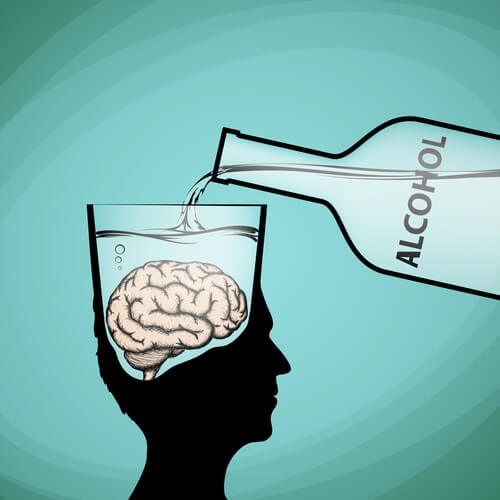The Ways Alcohol Affects the Brain
You may think that alcohol affects only heavy and chronic drinker’s brains, but you would be wrong. There are some common effects, which almost every person who drinks alcohol experiences. In this piece, we will examine the effects of alcohol from mild to severe.
Occasional and Moderate Drinkers
There are some ways occasional drinking affects the brain. Have you ever went out with friends, had a few drinks and woke up the next morning unable to remember all or part of your night? Alcohol obstructs activity in the hippocampus, the portion of the brain that forms new memories. Memory impairment is the most common way alcohol affects the brain.
Impaired decision making is the second most common effect of alcohol. The term “lowered inhibitions” is usually used to refer to the awful decisions we make when intoxicated. The poor decisions we make when drunk can range from silly dance moves to driving drunk. Alcohol can affect the cerebral cortex, which makes a person less inhibited. It also slows down information processing from the eyes, ears, mouth, and other senses. As well as inhibiting the thought process, making it more difficult to think clearly.
The effects of alcohol are short-lived and relatively harmless to occasional drinkers. However, the effects of poor decisions can haunt someone for years. Lowered inhibitions lead to reckless decision making, such as vandalism, and driving under the influence. An alcohol-related incident, such as a car accident can result in ongoing legal problems. If you’ve had an accident because of drunk driving, you’ll need to obtain the proper car accident attorney to fight for you.
Heavy and Chronic Drinkers
All of the above apply to chronic drinkers. Alcoholics can experience longer lasting, more serious effects of alcohol on the brain. Long-term alcohol abuse can cause permanent damage to the brain. This means that even after getting sober, the problems may go on.
According to a study done by the National Institute on Alcohol Abuse and Alcoholism, alcoholics display mild to moderate problems in brain function. The most commonly affected functions are, the ability to think abstractly and the ability to remember the location of objects.
There are also numerous brain disorders associated with alcohol abuse. Researchers have found that up to 80 percent of alcoholics have a thiamine deficiency. Some of these cases will result in a serious brain disorder known as Wernicke-Korsakoff syndrome (“WKS”). WKS symptoms include confusion, loss of memory, and hallucinations. In the worst cases of WKS, the patient is unable to make new memories.
Alcohol also affects the size of the brain. When compared to nondrinkers, alcoholics brains are smaller and less dense. The two areas affected the most are the cortex and the cerebellum. The cortex is the center of higher mental functions. The cerebellum is largely responsible for balance as well as aspects of learning. Doctors can detect decreases in these areas, and allow for diagnosis in the early stages of brain function.
How Much is too Much?
The line between a moderate and chronic drinker is unclear. Some studies suggest that drinkers who consume more than 21 drinks per week experience issues. While other studies suggest that problems may be detectable only in those alcoholics who have been drinking for ten years or more. Long-term social drinkers have shown cognitive deficits equal to those found in alcoholics.
The Good News
Most of the alcohol’s effects on the brain are fixed with abstinence. Newly sober alcoholics often exhibit mild yet significant problems in some brain functions, especially problem-solving, and short-term memory. By remaining sober over a period of several months to one year, recovering alcoholics begin to recover brain function. This includes working memory, attention, and increases in brain size.
Alcohol affects brain chemistry by altering levels of neurotransmitters. Alcohol acts on the receptors for neurotransmitters known as GABA, glutamate, and dopamine. The effects on the GABA and glutamate receptors cause slow movement, slurred speech, and physiological slowdown. People drink for the effect alcohol has on the dopamine levels. Alcohol increases the level of dopamine in the brain. This creates the feeling of pleasure that occurs when someone takes a drink. Which results in a re-wiring of the brain. With abstinence, the brain is allowed to resume normal function and repair brain-cell networks.
Whether you are an occasional or chronic drinker, alcohol affects your brain. It is a good idea to drink less alcohol. You should also take the proper steps when having a night out on the town. Alcohol affects your inhibitions and causes you to do things you normally wouldn’t do sober. Remember that alcohol greatly impairs your decision-making process and plan ahead. Always drink responsibly and have a designated driver. The effects of alcohol on your brain will wear off. However, a DUI could cost you for life.




